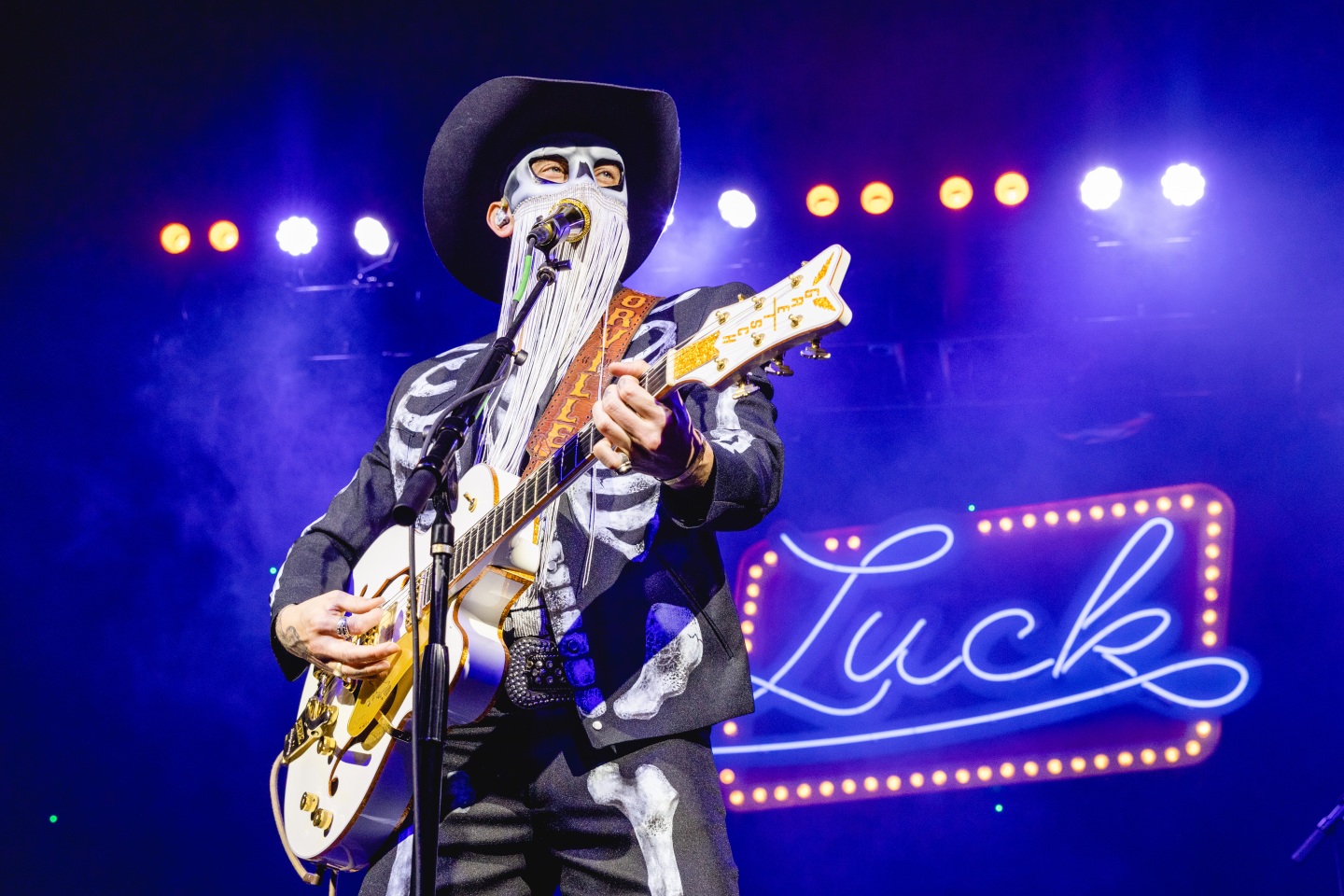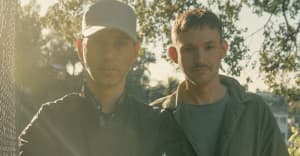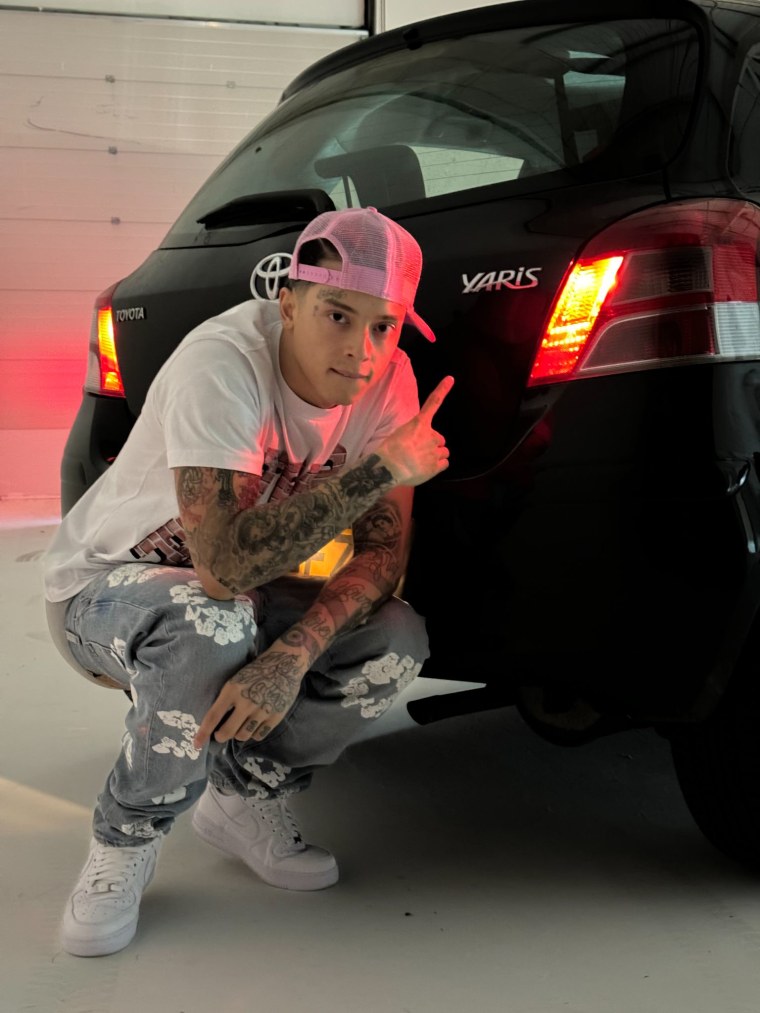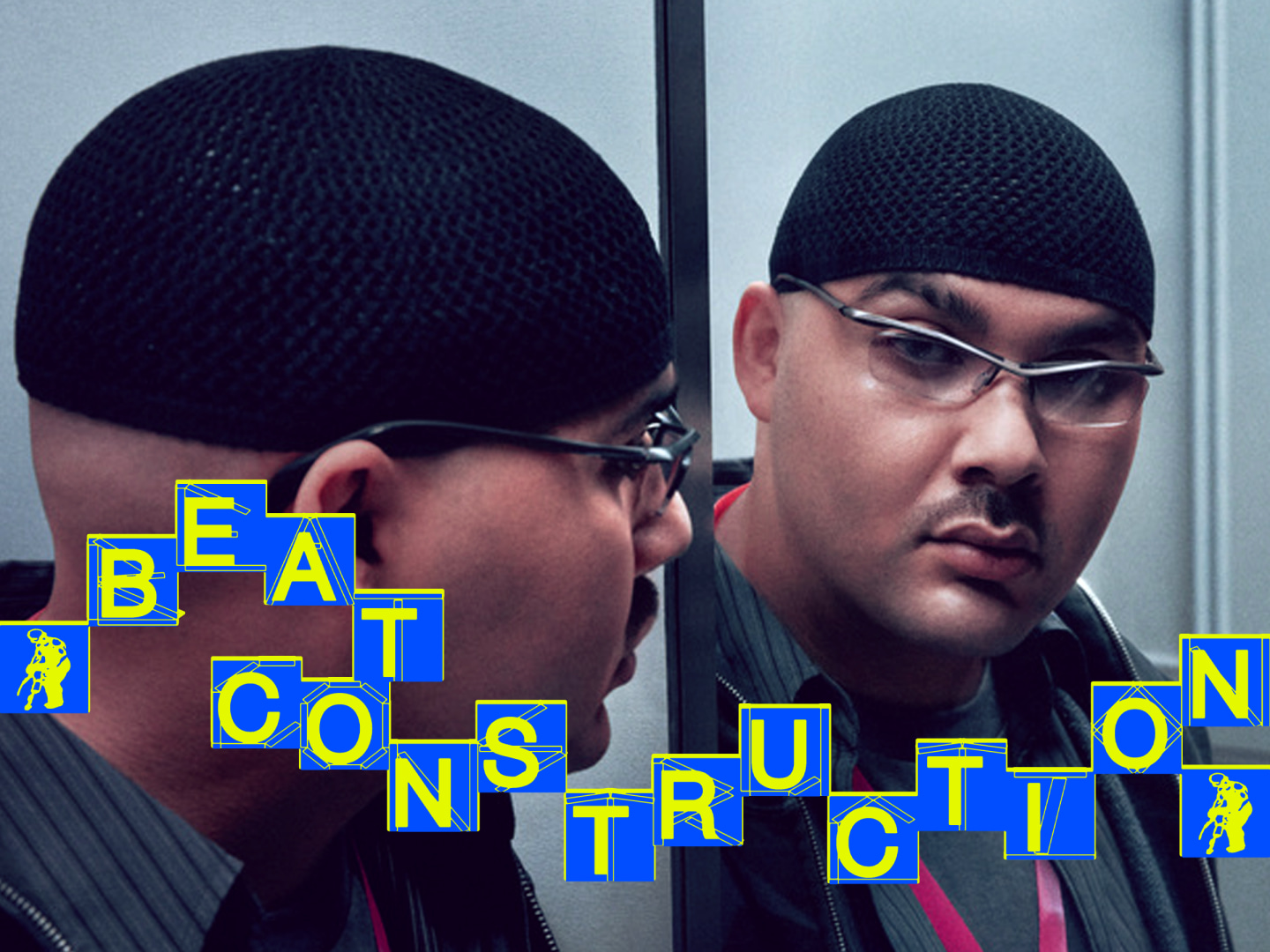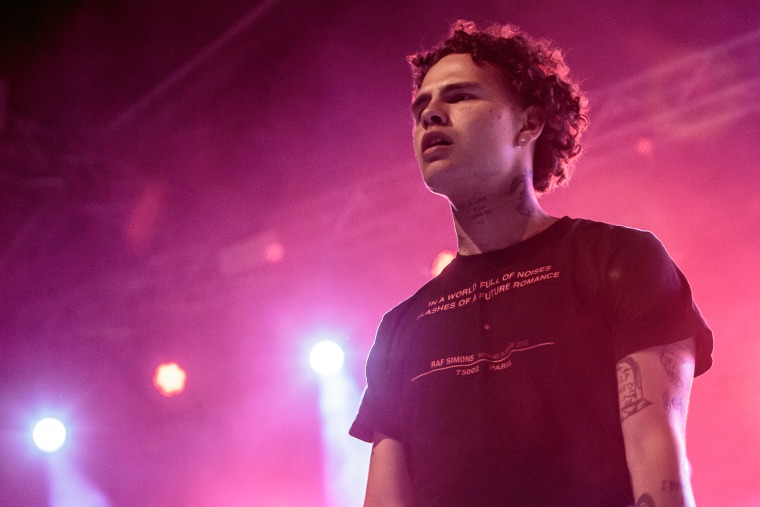Orville Peck.
Photo by Rick Kern/Getty Images
For over 50 years, Oil Can Harry’s in Studio City was considered a cornerstone of L.A.’s LGBTQ+ community. More than just a humble western bar, it was also a community hub for LGBTQ+ country-lovers, who began flocking to their popular line-dancing night in the ‘70s, when same-sex dancing was still illegal. So when the beloved venue closed its doors in 2021, Sean Monaghan and Bailey Salisbury were determined to keep this tradition alive by starting their own weekly queer country line-dancing night called Stud Country.
Known amongst regulars as “Church,” the community-focused night is at the center of Lina Abascal and Alexandra Kern’s award-winning short documentary for The L.A. Times, Stud Country. A glimpse into the city’s long-standing queer line-dancing scene, it’s currently making the rounds in the festival circuit, with potential for an Oscars nomination for its tender portrayal of a younger generation that’s carrying on the brazen legacy of Oil Can Harry’s line-dancing nights.
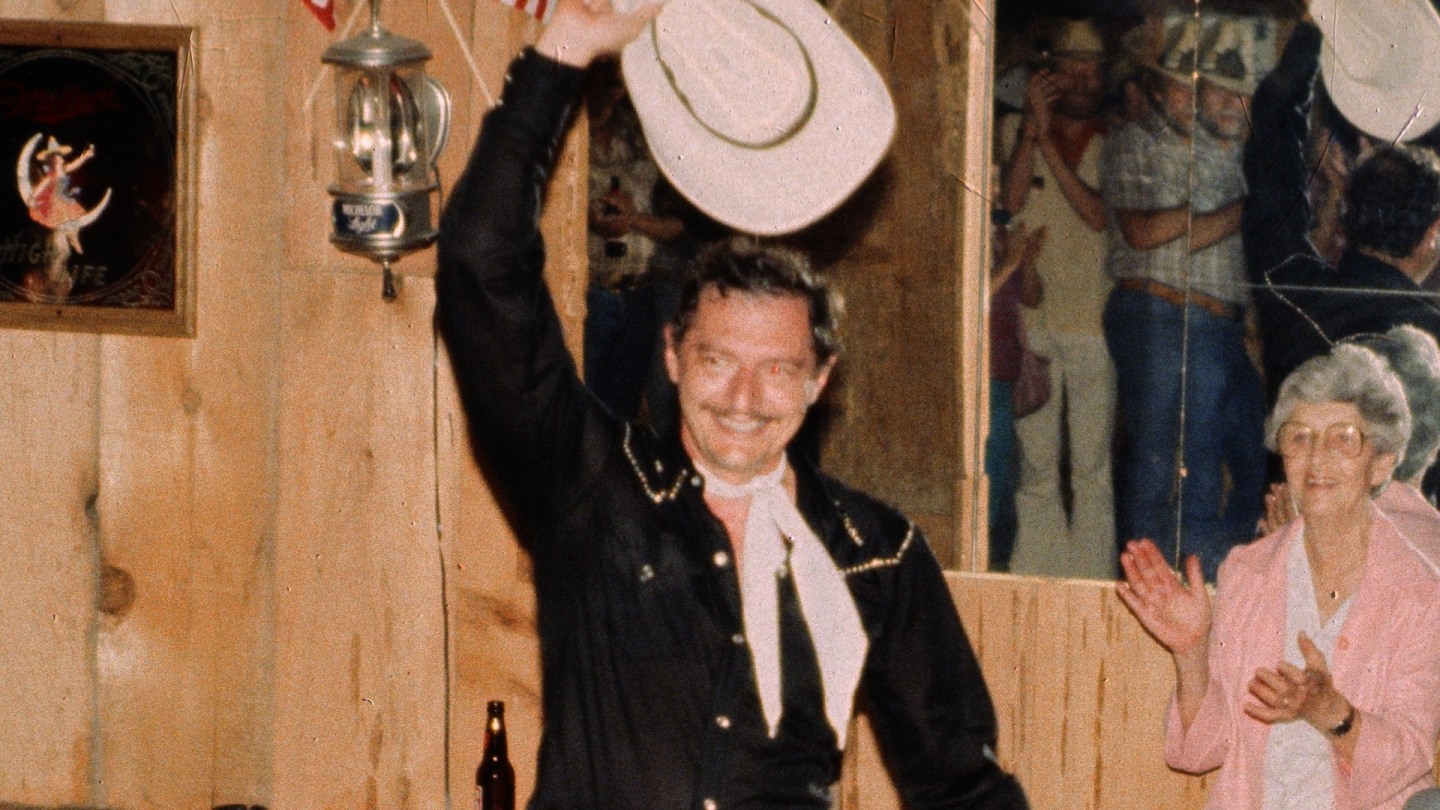
Stud Country star Anthony Ivancich during his time as a choreographer and line dancer in the ’80s.
Photo courtesy of Anthony Ivancich
Despite only being 10 minutes long, Stud Country makes it clear that there’s no irony attached to the event. Rather, it’s a poignant and earnest portrayal of the people who continue to celebrate a brave community born out of necessity. Like many other line-dancing nights, Stud Country is a traditional affair, where veteran dancers like Anthony Ivancich teach new members the same moves they learned years ago at Oil Can Harry’s.
Line-dancing is a form of folk storytelling, made up of a “core group of dances that have traveled by oral instruction for decades,” Abascal notes in her original Stud Country feature for The L.A. Times. In fact, long-time dancer Shane Kirkpatrick called it “the last bastion of social dancing where you have physical contact with another person” in the gay community, where you’re able to “converse with another person, and make a connection that’s not anything other than dancing.”
Stud Country is one of those rare documentaries that’s able to bring you into the fold, especially through powerful scenes like the final dance, where every Stud Country attendee twirls and side steps in thrilling unison. Soundtracked by a special musical Easter egg called “Tennessee” by Kesha and Orville Peck, the Hudson Mohawke-produced track is a maximalist boot-stomper with the ability to instantly transport you to the Stud Country dance floor. And with songwriting by Tayla Parx and Peck — whose instantly recognizable baritone pairs perfectly with Kesha’s riotous, full-throated delivery — it’s an uptempo revamp of that classic country sound, infused with an undeniable warmth and sense of welcoming. So to honor the success of Stud Country, we spoke to Peck about his experience turning “Tennessee” into the kind of eclectic and exuberant track that’ll have you doing the “Cowboy Cha Cha” in no time.
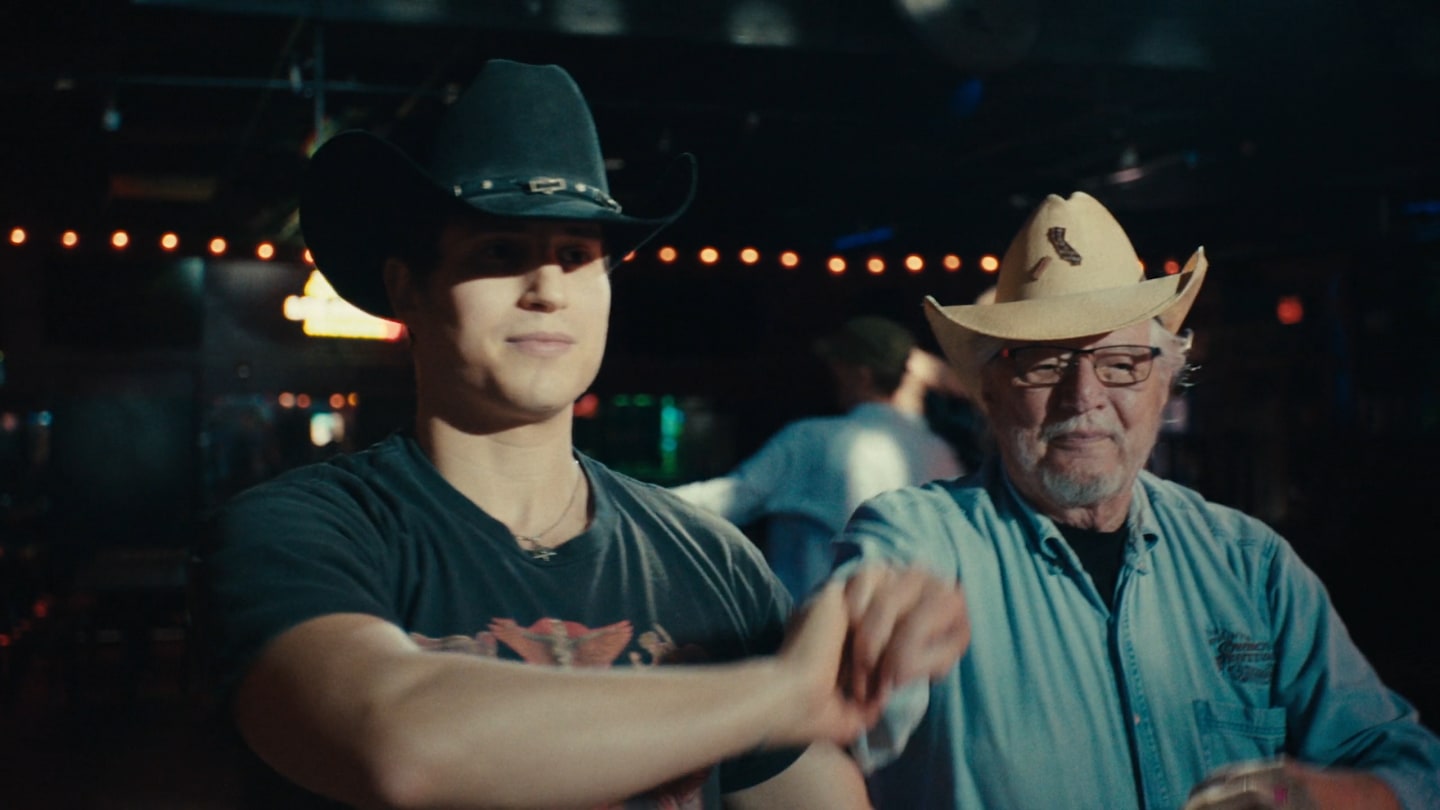
Zach Solomon and Anthony Ivancich dancing at Stud Country in 2023.
Photo courtesy of Lina Abascal and Alexandra Kern
How did “Tennessee” itself come to be?
I’ve written a lot with Kesha, and we became good friends. So we hung out a lot, and she she ask if I wanted to come to this writing session with Tayla [Parx], who I hadn’t met before, and Hudson [Mohawke].
It was really cool and very collaborative. I mean, we were all sort of bringing our particular skills to it. You know, I think I mostly sort of contributed lyrically, and it’s always really fun to write. Because originally, [“Tennessee”] was intended to just be a song for Kesha herself, without me singing on it at all, or anything like that. But it’s always really fun to write with artists that have a very different approach than you, because you can kind of scratch an itch that you wouldn’t be able to do with your own music, necessarily. It was a really cool writing room though. It was super collaborative, and everyone’s really talented. And Kesha is also such an incredible singer. You can ask her to do anything, and she’ll just belt out, so it was fun.
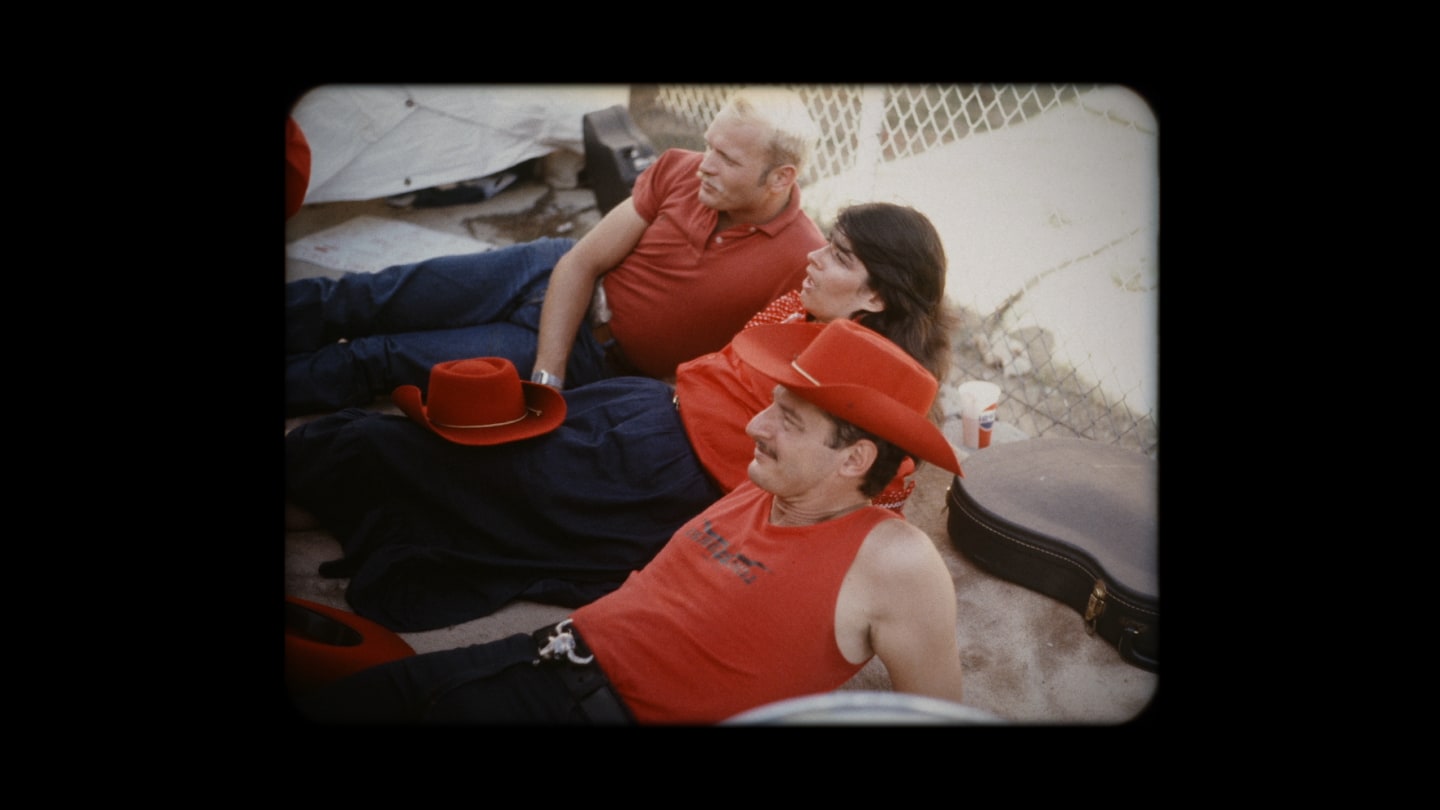
Anthony Ivancich at the Christopher St. Pride Parade in the ’80s.
Photo courtesy of Anthony Ivancich
Apart from what’s probably a Nashville reference, was there anything else behind the name “Tennessee”? Like the Drag Ban or Senator Marsha Blackburn’s political views?
We actually wrote this long before anything about the Drag Ban, and it was mostly about our love of Tennessee, and the fact that Kesha’s mom is from Tennessee, basically. So it was more of a love letter that sort of plays on this idea that Tennessee’s what made Kesha the wild woman that she is today.
What were your first thoughts when you heard about this tradition of queer line-dancing that’s been in L.A. since the ‘70s?
It’s awesome, but it’s not that shocking to me. There’s always been queer people within country culture and, for years, I’ve seen people dancing to my music in queer line-dancing [events] around the country. I think it’s part of a beautiful history.
Do you think there are particular elements of the music itself that resonate with queer people or their experiences?
Definitely. I think country music has a lot of its storytelling themes about disappointment, loss, heartbreak, unrequited love, and inadequacy. And those are big themes that [affect] a lot of queer people’s lives when they’re growing up.
Why do you think most people would probably still be surprised that this queer line-dancing culture exists?
Honestly, it’s shocking to me that people think that gender, or sexuality, or anything should dictate people’s interests. I mean, Lavender Country, which is Patrick Haggerty — the grandfather of gay country music — made that [self-titled] album decades ago. There’s always been queer country artists. There’s always been queer themes within country and western and, if someone’s shocked by that, it’s because of their own ignorance.
I play shows all around at country festivals [and] country shows, where tons of queer people come. They love country music, line-dancing, and that whole culture, and they live it very strongly. Just because there’s bigotry, I don’t think that that takes away anything or takes the “ownership” [of country] away from anyone else. That’s the problem of the person with the prejudice, not the victims of it.
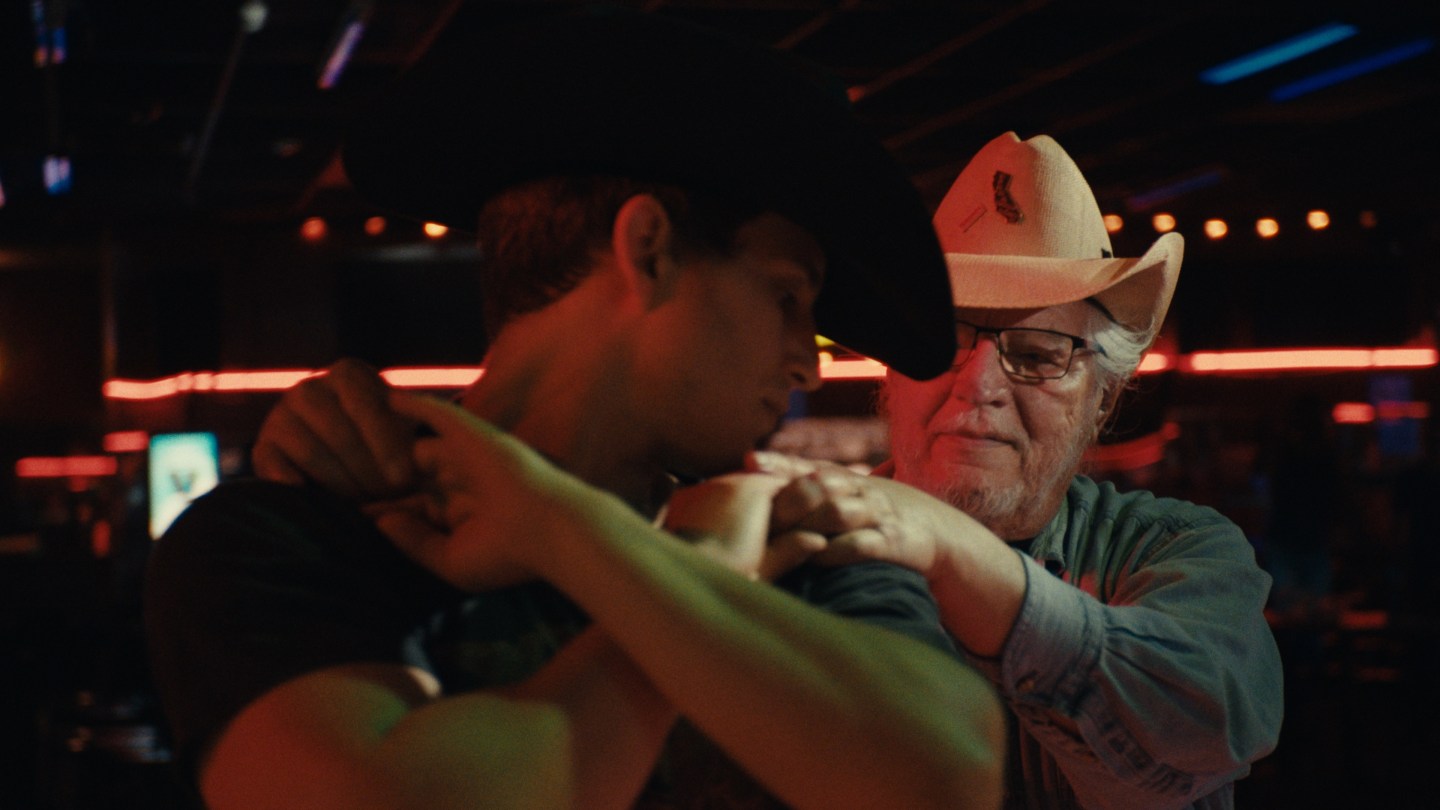
Zach Solomon and Anthony Ivancich dancing at Stud Country in 2023
Photo courtesy of Lina Abascal and Alexandra Kern
When do you think the country scene started to be more accepting of the queer community? And what’s that relationship like now?
I think it’s still in the process of that. Like I said, it’s slow moving, but there’s been a lot of people over the years who’ve had the courage to be themselves. I think it speaks more to someone’s personal journey when it [comes to being their authentic selves], rather than there being a lack of queer people interested in country music.
What are your thoughts on this new wave of queer country? Especially since you’re often credited with being one of the first to popularize it?
Yeah, it’s something I’ve always been interested in. The fact that I’m gay and have always liked and made country music, those two things are inseparable to me. But neither are conscious decisions. I just like what I like, and I love who I love, and those things can be related to one another.
*This interview has been lightly edited and condensed for clarity.

